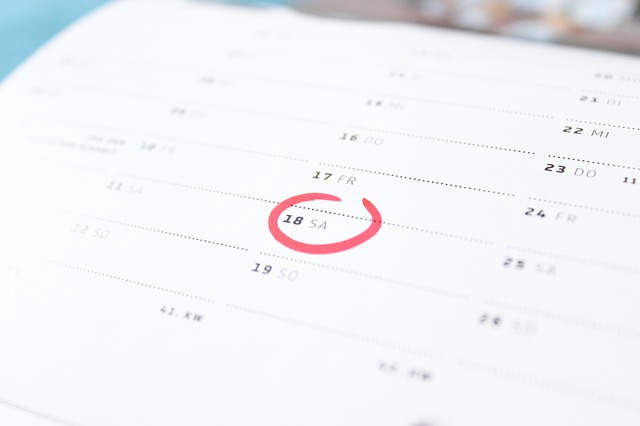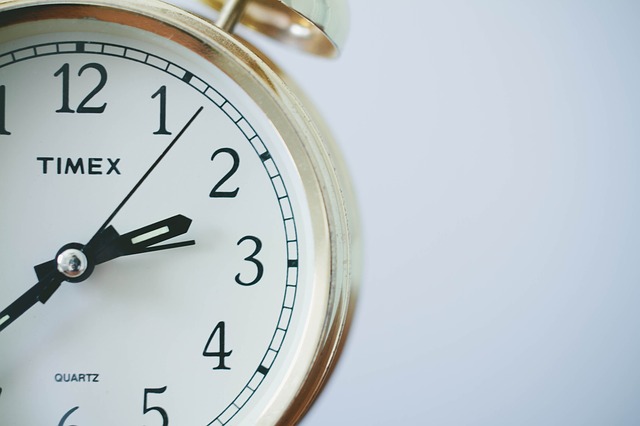There is a lot to consider when retaking the MCAT. For instance, how often can you retake the MCAT? How much more time do you want to devote to studying? And most importantly, does it look bad to medical schools?
These are just a couple of questions, but the reality is that this is a very stressful topic for a lot of people. I have personally been in this situation. My first MCAT score was not good. It was evident that I would have to retake it in order to be competitive for medical school.
I retook the MCAT again with lots of success. And I am really glad I did because I ended up getting interview offers to almost half of the schools I applied to!
Keep reading until the end of this article. I explain exactly how to better prepare yourself for an MCAT retake with examples from my own personal experience.
Does retaking the MCAT look bad to Medical Schools?
First less address the biggest concern. Does taking the MCAT again automatically make you look undesirable to medical schools?
The simple answer is no. Retaking the MCAT does not directly hurt your chances of going to medical school.

This is something I stressed out about a lot when I realized I would have to retake the MCAT. I went on websites like Student Doctor Network and read comments from other premeds which pretty much said that you are shooting yourself in the foot if you retake the MCAT. For the most part, I knew where they were coming from. The MCAT correlates to your board exams and medical schools are looking for the highest percentage of first-time pass rates for boards.
However, these theories are not based on facts but rather assumptions from other premed students who think they have it all figured out.
I knew it was a trap to trust the advice from SDN, so I did my own research. I spoke with academic advisors, MCAT teachers, med students, and even medical school admissions committee members regarding the topic of retaking the MCAT. Everyone more or less gave me the same answer.
Medical schools like to see commitment and determination to improve.
Think about it, medical schools are all looking for the same thing. They want students to succeed both academically (represented through average board scores and residency acceptance rates) and in their future careers (successful practices, publications, really making a difference in the world).
When a student is successful in both these factors, they represent their medical school in a positive light. The more successful students representing a medical school the greater the prestige of that medical school.
And therefore, the more money that medical school will receive for future students, research, and growth.
With this in mind, we can see how an MCAT retake can actually be a positive factor for an application. If a student does poorly their first attempt but puts their nose to the grindstone and improves, this shows medical schools that this student will continue to work hard and improve.
Retaking the MCAT shows determination. Nobody wants to take this exam once, let alone multiple times. If you are willing to put yourself through that process more than once in order to show improvements, medical schools will see this.
Technically speaking, a student who does amazing their first time on the MCAT could be a great future med student. But he or she could also be someone that does well only until they hit a rough patch and things fall apart.
It’s practically a roll of the dice!
In conclusion, everyone makes mistakes and a bad MCAT score is not a game changer. Focus on improvement and medical schools will see this. All medical schools want to see is that you are a hard-working student ready to overcome challenges and improve daily.
Therefore, retaking the MCAT does not hurt you automatically. In fact, in some cases, it can help you. Improvement is key.
Further Reading: Deciding whether or not you should ever void the MCAT.
When do MCAT retakes look bad towards Medical Schools?
Although in general MCAT retakes do not look bad, especially when followed by improvement, there is a point where it can adversely affect your application.
Retaking the MCAT looks bad when you retake it many times without any improvement.
Granted, if you retake the MCAT once, twice, or even three times with bad scores and then follow it with a great improvement, you are setting yourself up for success with the med school applications.
However, if you take the MCAT three, four, or five times and are showing little to no improvement, we have a problem. If this series of bad scores is followed by a marginally better score we are still going to have a problem.
But nothing is impossible!
If you are in the category of many poor attempts at the MCAT, you should still try to figure out what you need to do to receive a competitive score. Once you figure that out and receive a good score, you can pitch that to medical schools as a change in study habits which ultimately led to success.
Remember, medical schools want to see that you are always trying to make improvements in order to be a better physician.
When should you consider retaking the MCAT?
- When your score is lower than what’s competitive for the medical schools you are applying to.
- You should always strive to have an MCAT score that is at least the average of the medical school you are applying to.
- It’s true that other parts of your application can make up for a lower score, but if you have the chance to take the test again I would strongly consider your do so.
- When your actual score is significantly lower than your practice scores.
- If your actual MCAT score is lower than your practice scores with the AAMC’s practice tests, then this means you were subjected to a fluke. It is normal for your actual MCAT score to be at least the same if not higher than your practice exams. Take all your practice exams scores, average them, and see how the actual exam compares.
- If you were sick or distracted on test day.
- Sometimes life just gets in the way. If you were sick during the MCAT or distracted by some sort of significant life event, you might score lower than your potential. Consider retaking so that you can operate at 100%.
- If you haven’t completed all the pre-med prerequisites.
- The premed prerequisites are not required to take the MCAT. However, there are some classes (sometimes called MCAT prerequisites) which are recommended to take prior to the MCAT.
- If you are missing an MCAT prerequisite like Biochemistry before taking the MCAT for the first time, it might be worth it to retake the MCAT after you take a full-fledged course on biochemistry.
- If you have the time to properly prepare.
- This is important. You don’t want to make the same mistake you made the first time.
- Make sure you understand your weaknesses and give yourself adequate time to prepare. Sometimes this might only require an additional month to iron out some problems you had but other times you may need several months to really study.
- Your MCAT scores are very unbalanced
- If you did well on your Chemical and Physical Foundations section but your CARS section is terrible, you have an unbalanced score. Even though your overall score might not be bad, seeing one particularly bad section could be a red flag (especially if it’s CARS).
When you should NOT consider retaking the MCAT?
- Your score is above 518 or is within the range of your desired medical school averages.
- Don’t be a perfectionist. If you have the score you need there is no reason you should waste another $300 and valuable time to retake the MCAT. Focus your efforts on other parts of your application!
- You do not have adequate time.
- Really make sure you properly gauge how much additional studying you need. If you are a few weeks out from the last test date and you need to complete the MCAT this year, consider whether it is worth risking getting a lower MCAT score. Who knows, you may be able to make it work with what you have.
How soon can you retake the MCAT?
In other words, how long will I have to wait before I can retake the MCAT?

There is no set guideline, but there is one limitation. According to the AAMC, you can only register for one MCAT at a time and you must wait 48 hours after your test date to sign up again.
Now, this is the technical guideline. In reality, right after you take the MCAT most of the seats will be full. You may have to wait a month or take the exam in a different state. Therefore, you can expect to wait a few weeks before taking the MCAT again. Take this time to better prepare yourself!
How many times can you take the MCAT?
We go into detail about how many times you can take the MCAT exam in a previous article. But to reiterate, you can take the MCAT 3 times in a one year period, 4 times in a two year period, and 7 times in a lifetime. This is straight from the AAMC MCAT website.
How long is recommended to study for an MCAT retake?
As long as it takes to fix your mistakes.

Let’s get more specific than that. No one ever really feels like they are ready for the MCAT. You could study for a year and still feel like you need more time.
Of course, we don’t have a year to study for the MCAT. A pre-med’s schedule is full of classes, extracurriculars, and other hoops that medical schools have you jump through.
Chances are you don’t need as much time as you did studying the first time. You probably just need to change your viewpoint on studying.
In my experience, most pre-meds make the mistake of not doing enough practice problems. If this is you, then put aside about 1 month of study time and devote all that time to doing practice problems followed by a review.
What about retaking the MCAT after applying?
This is a common thing to do. You need an MCAT score before medical schools can consider your application. However, you can indicate that you are retaking the MCAT after you apply. How does this affect the way medical schools view your application?
Like most MCAT committee decisions, there is not a clear answer.
Of course, the committee will see that you are scheduled to take the MCAT a certain date. Because you already have an MCAT score, medical schools will begin reviewing your application. The only difference is that if you are a borderline student, they may decide to wait until you get your retake scores back.
If they see improvement, that’s a point for you. Because applying early is important for getting into medical school, it is recommended not to delay waiting for your MCAT retake scores.
Send those med school applications in as early as possible.
What if you retook the MCAT and did worse?
This isn’t the end of the world. There are flukes in every situation. If this is the case then you should definitely consider retaking the MCAT again. You need to prove that you are capable of improving your MCAT score.
To medical schools improving shows determination.
Should I retake the MCAT before scores are release?
No, you shouldn’t. Just because you felt like you did poorly doesn’t mean you actually did poorly.
I have heard of people going into the MCAT puking and pulling off a good score.
Studying for the MCAT is stressful. You do not want to put yourself through that again unless you it’s absolutely necessary. Wait for your score.
So, should I retake the MCAT?
I understand this is a tough question to answer, I’ve been there. The answer depends on all the factors I listed above including a few extra points to consider.
If you are applying to medical school, don’t forget to consider the fact that you will have a lot on your plate. Medical school applications take up a lot of time. Not only do you have the primary application, but you have all the secondaries.
If you are applying to as many as 20 schools, you could potentially have 20+ essays to write.
Studying for the MCAT while doing medical school applications requires a lot of time juggling. Prep yourself for this. Maybe you should wait a cycle to apply? Or maybe you should study for the MCAT sooner.
If you have not finished all the premed prerequisites, consider retaking the MCAT after you finish all of them. Yes, the most important part about studying for the MCAT is practice problems. However, you do need a general grasp of the sciences. Not having taken biochemistry will require extra content review.
Finally, make sure you are confident. If you are not confident in your abilities to do well on the MCAT, this will reflect on the actual exam.
The MCAT is just another test. Nothing special. Doing poorly on the MCAT doesn’t reflect how smart you are. Realize that you have just been studying for it the wrong way and adjust. Read below for advice on how to better prepare.
How to better prepare for your MCAT Retake
If you are reading this post, you probably have studied for the MCAT incorrectly the first time. And that’s okay! Most of us do.
In fact, throughout my studies, I discovered that the majority of people are studying for the MCAT incorrectly. Yes, they may get a good score, but they are not living up to their true potential.
The key is very simple. Practice, practice, practice. You need to get into the MCAT mindset.
The first step is making sure you have the proper resources. I wrote extensively on which books I recommend based on my own experience and the experience of many other high scoring MCAT students. Check out my post on the best MCAT prep books. I also wrote a post on a list of great MCAT books containing loads of quality practice passages and problems.
The strategy is very simple, complete practice passages or practice tests and then review them the following day referring back to your MCAT content books for the material you struggled with.
This is essentially how I increased my MCAT score by 12 raw points placing myself in a competitive percentile. I took 12 practice exams in the period of 30 days and reviewed every one of those tests. I learned a lot during that month and I can safely say that this strategy truly made me understand how to do very well on the MCAT.
Here is this detailed 1-month MCAT retake study schedule.